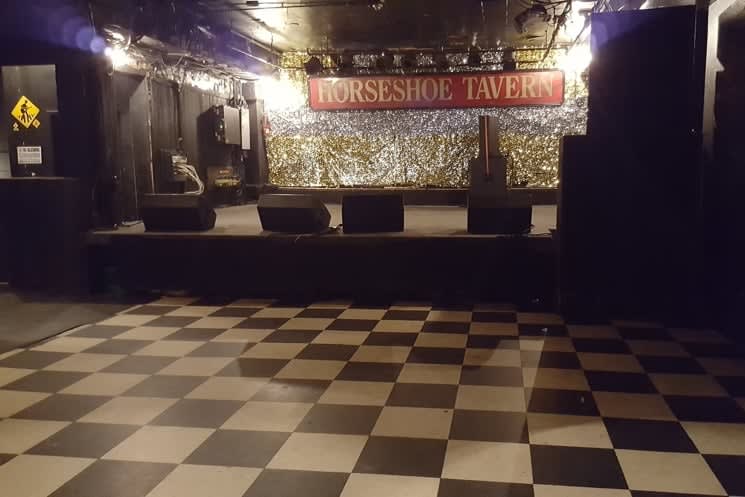Not even "emergency brake" shutdown measures can slow the ineptitude that has defined the Ontario government's pandemic response, as the province deals another blow to its arts and culture industries by outlawing livestream concerts for a second time this year.
The province-wide restrictions, which officially came into effect April 3, prohibit recorded and livestreamed performances to be hosted or broadcast by local venues for the next four weeks. Similar measures were enacted in January as part of the government's stricter stay at home order.
However, the new measures continue to leave larger industries and workplaces such as factories, warehouses and construction sites unaffected.
Media industries allowed to operate under the government's "emergency brake" measures include commercial film and television production and related activities; sound recording; commercial and industrial photography; and software or video game developers.
Horseshoe Tavern owner Jeff Cohen, who was recently forced to reschedule April performances in the venue's "Hootenanny" livestream series, told the Canadian Press that the government "is picking winners and losers without any logic... The moment we try to do something proactive… we're just getting hit on the head with a rubber mallet."
Cohen continued: "I'm a prudent guy, so I'm like, 'OK, we can't livestream.' But you can stand in line at a retail store that's non-essential to buy a skirt? Like, that makes no…sense at all."
The latest restrictions affecting Ontario's live music industry arrive nearly a month after the provincial government announced a $2.5 million investment in the Unison Benevolent Fund's COVID-19 Relief Program and the Canadian Live Music Association.
In 2019, the Doug Ford-led Progressive Conservatives slashed the Ontario Music Fund by nearly half, reducing it from $15 million to $7 million.
The province-wide restrictions, which officially came into effect April 3, prohibit recorded and livestreamed performances to be hosted or broadcast by local venues for the next four weeks. Similar measures were enacted in January as part of the government's stricter stay at home order.
However, the new measures continue to leave larger industries and workplaces such as factories, warehouses and construction sites unaffected.
Media industries allowed to operate under the government's "emergency brake" measures include commercial film and television production and related activities; sound recording; commercial and industrial photography; and software or video game developers.
Horseshoe Tavern owner Jeff Cohen, who was recently forced to reschedule April performances in the venue's "Hootenanny" livestream series, told the Canadian Press that the government "is picking winners and losers without any logic... The moment we try to do something proactive… we're just getting hit on the head with a rubber mallet."
Cohen continued: "I'm a prudent guy, so I'm like, 'OK, we can't livestream.' But you can stand in line at a retail store that's non-essential to buy a skirt? Like, that makes no…sense at all."
The latest restrictions affecting Ontario's live music industry arrive nearly a month after the provincial government announced a $2.5 million investment in the Unison Benevolent Fund's COVID-19 Relief Program and the Canadian Live Music Association.
In 2019, the Doug Ford-led Progressive Conservatives slashed the Ontario Music Fund by nearly half, reducing it from $15 million to $7 million.




